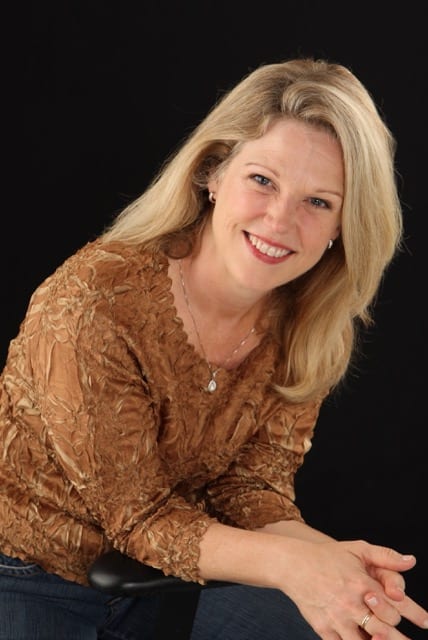Eva Brandys 
Owner of Park Cities School of Music and Lakewood Conservatory
Eva Brandys is a Southern Methodist University graduate with a focus in Piano and Music Pedagogy. She also hired me to teach voice and piano to some of her students at her Park Cities location.
Did you have a business plan when you started your business?
This is my first business, and I just had a business plan in my head. Banks generally require business plans if you apply for a loan, but since I didn’t apply for a loan, I didn’t need one. I already knew exactly what I wanted to do and how I wanted to structure it. I never had any business classes, but I worked for a music school company and learned how to do business.
Do you think business plans are necessary for entrepreneurship?
It’s very necessary. Mine wasn’t in writing, but I knew exactly what needed to be done and had a clear vision. I would say when it comes to business the financial plan is the most important. You need loans beforehand and can’t apply for them without a plan, so it’s important to have a focus three years out. It’s also a helpful tool for predicting how to use your income. Some people put their salary at $0 for the first 3-5 years just because they know it needs to be going back into the company. One financial tip I would give is the power of negotiating commercial rental space. I got lucky because I was looking to rent during the recession, so rates were very low.
What three pieces of advice can you offer developing arts entrepreneurs?
First, if you are not passionate about your work and not willing to sacrifice, don’t go into it. Being an entrepreneur is not 8-5 and weekends off – it is 24/7 and you will dream about it. Also, having the discipline to make rational decisions and stay on top of your work is crucial. Less emotional thinking will help thicken your skin in the business world. Finally, embrace the power of networking and advertising. It doesn’t happen overnight, and it can be helpful to have someone in charge of PR.
Al Poppino 
CEO at ColorMark Printing
Al Poppino started ColorMark printing from scratch with two partners, one of which ColorMark eventually bought out. ColorMark has made the journey from three to one hundred employees, not to mention the extra six when they bought out a graphics company about twelve years ago.
Did you have a business plan when you started your business?
No – we had a plan of sorts, but not formally written on paper. When you get into something you’ve never done before, you have to have proper contingency planning. If you’re going to survive the first year, you specifically need to plan around cash contingencies. We had more of a game plan than a business plan.
Do you think business plans are necessary for entrepreneurship?
That depends on your definition of a plan. The number one thing you need to plan is cash flow. 20% of your earnings need to be dedicated to cash flow. If you don’t plan accordingly, you’re going to be living invoice to invoice, which isn’t sustainable.
What three pieces of advice can you offer developing arts entrepreneurs?
Number one is to do your research. In other words, you can’t say that you’re going to buy a car wash and never had your car washed. Number two is to not necessarily have a business plan, but a business strategy with some beginning cash flow. Finally, you are going to want to find a long-term financial partner. I’m not talking about an investor, but a bank. This way you can borrow money and develop a relationship. It took me two or three years to develop a track record of profitability, but it was worth it.
That being said, what is your opinion on debt?
You can’t do business without debt – it’s impossible. Be smart about it. Has work been promised to you if you make a commitment that puts you into debt? Just remember that your first year you have to go on a diet, you can’t eat!
Business Management Consultant
Dodie Jacobi is a Southern Methodist University alumnus. Like me, her focus was on voice, so I got an especially unique perspective from someone who has been in my shoes and understands the nuances of business planning on a very deep level.
Did you have a business plan when you started your business?
I have started many different businesses, and I have had plans for some. I define a business plan as an outline that tells me potential profits and losses and contains a high-level marketing strategy. I do these steps for every new idea, whether it’s a business or a product.
Do you think business plans are necessary for entrepreneurship?
The process of putting one together is necessary. What the final product looks like is determined by the audience – is it for you or someone else?
A business plan is good for personal benefit, but it also has perks for various interactions. When funding is at stake, the plan is more comprehensive. It can also serve as a helpful backup document when requesting grants in the nonprofit sector. Overall, it is a way to stimulate holistic thought and communicate where you’re headed. For this reason, it can also help in recruitment and “onboarding,” or getting people on the same page philosophically.
What three pieces of advice can you offer developing arts entrepreneurs?
Number one is to be brave. I can’t underemphasize the power of the first step. To quote MLK, “Don’t worry about the staircase.” Number two is to be very demanding when it comes to your vision, and align yourself with other people who fit that vision. My analogy is “eharmony protocol” – in a relationship, know what must you have, what can you not stand, and what are things that are nice. Finally, be aware of your own self-care. Entrepreneurship is consuming, and even if you love what you’re doing, you can’t do it all the time. It is a marathon of sprints – pace yourself when it comes to your ventures, and you will set a good example for your employees.
Interviews by Alex Beane, student at SMU





